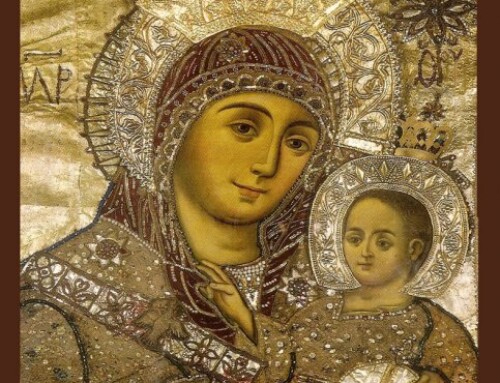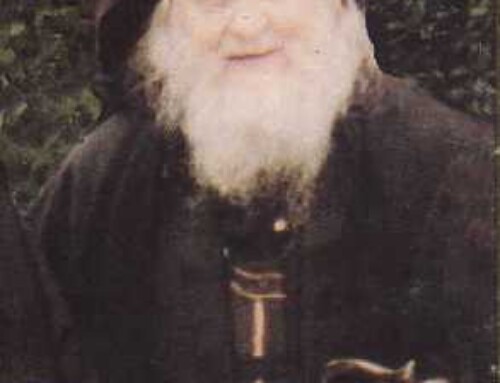Word Magazine April 1987 Page 20
IMAGINE PARALYSIS
Homily By Father James C. Meena
Judy, raise your hands; now shake them, wave them! Thank you. Tom, stand up and stamp your feet! Thank you. Everybody in the church, lift your hands as though you’re praising God and wave them! O.K.! Wipe your forehead! Scratch the back of your head! Now, close your eyes and imagine the most horrible thing happening to you, a tragic accident or an illness which somehow or other attacks the upper part of your spine around the atlas area and suddenly makes you a quadriplegic. Paralyzed! Unable to move! Wanting to raise your hands to glorify God, but you can’t! Needing to be fed by those who are compassionate enough or mercenary enough to take care of you. Needing all things done for you. Even having no control over your bodily functions.
Imagine the horror of it!
Imagine now, with me, that the tip of your nose is itching, itching very badly and you want to scratch it but you can’t raise your hand to do it. Your mind says to your hand, “Come up and scratch my nose,” but your hand doesn’t obey and you sit there, itching, twitching, sneezing. Isn’t that a horrible thing? Well imagine what it must have been like in the time of Christ when there was no medical knowledge of how to deal with paralysis. No therapy, no medicines, nothing! They simply looked upon the paralytic as someone to be pitied or perhaps even shunned. They had to depend on miracle workers, the angels of God to descend from heaven as in the instance of the paralytic in St. John’s Gospel lesson, (5:1-15).
Although being a paraplegic is still a horrifying experience, nonetheless we do have medical techniques that make it somewhat easier for a paralytic to adapt to our society. They have bionic medicine, physiotherapy, even techniques which restore to a small degree in some instances the use of the limb so that the paralytic with some aid and assistance might feed himself or even manage to manipulate a pencil or pen or mechanically turn a page in a book. Things that were unheard of thirty or forty years ago, much less one or two millennia ago, are possible today.
So we speak of paralysis and our gorges rise. We feel like the bottom of our stomachs want to rise up into our throats and choke us with the fear, the anxiety and apprehension of considering the possibility that this might happen to us. As we lie quietly in the stillness of our dark rooms, in the soft embrace of our beds, suddenly this thought crosses our minds. That we might be paralyzed! And we feel as though a large hand has covered our mouth and nose so that we are about to suffocate from the fear which overwhelms us.
Imagine then how much more horrifying it would be for us to be paralyzed in spirit. Spiritual paralysis is infinitely more devastating than physical paralysis. Physical paralysis can be adapted to, it can be coped with. Somehow or other with the help of those who love us, who surround us, who are willing to assist us, those who are skilled, those who are trained, those who are professionals and dedicated to helping us can somehow or other assist us in adapting to and coping with physical paralysis. A paralysis of the spirit? Impossible! Because when the spirit is paralyzed there is no one who can come to our rescue except ourselves. We need to recognize that illness within ourselves which creates this paralysis of spirit. And what is that illness? It is absence from God! What is absence from God? It is sin! What is sin? It is death!!! Death by spiritual paralysis!
Now I know that every time I say the word, “sin”, there are some of you who say, “what is he talking about? We don’t sin. I don’t commit adultery, I don’t steal, I seldom consciously lie. I try to be nice to people.” That statement in and of itself is a sin and a manifestation of our unwillingness to recognize our own humanity and our own weakness and our own propensity to sin every day of our lives. Let me give you an illustration. We are walking down the street or driving our car and we see someone whom we never met, but suddenly there rises up within us an overwhelming feeling of dislike, of hatred because that person happens to represent something which is offensive to us. It might be the color of the person’s skin. It might be his or her size. Too tall, too short, too skinny, too fat, too ugly. I am reminded of a story that is told about Abraham Lincoln who was walking through the forest one day in his youth, tall and gangly and gawky as he was, and an aristocratic woman was riding her horse through that same forest and when they came upon Abe Lincoln, the horse reared and almost threw its rider. The woman looked at Mr. Lincoln and said, “Young man, you’re so ugly that you frightened my horse.” He replied, “Madame, I can’t help it if I’m ugly. God created me this way.” She said, “Yes, I know, but you could at least have the decency to stay at home!” Many of us feel that way when we see something that offends us, a black man, an oriental, a person too tall and too short, too fat, too skinny, deformed, a hunchback, a person with one leg longer than the other, whatever it might be, and in that instant, we sin.
When we are talking with someone, whether it be a dear friend, a relative or a stranger and we allow ourselves to feel disdain, contempt, anger for that person and do not resolve those feelings immediately, we sin. Every time we get up in the morning and think an evil thought, we sin. Every time we think profanity, we sin. But the greatest sin of all is that we refuse to admit our sins. I have been hearing confessions for nearly 35 years and I am absolutely amazed as I ask my people, one after another, “Have you anything you wish to confess?” So few say, “Yes” and so many say “No.” Yet we sin every day. If St. Paul, that great evangelist and Apostle could call himself the chief of sinners then are we not sinners as well? Is there not within ourselves the need to be sensitive to our own tendencies toward sin, and if we do not have this awareness, are we not then in reality spiritually paralyzed? Unable to recognize our own weaknesses, our own faults? If, dear God, the Patriarch of Constantinople, the Patriarch of Antioch, the great Patriarchs and Bishops of the Church find it necessary to attend the confessional and make confession of their sins and they are the great spiritual leaders of the Church, what have they left for us except to confess our sins as they who set the example for us?
Avoid that spiritual paralysis. Avoid it as you would avoid the plague because it will destroy you just as surely as a physical plague will destroy you. The only difference being that with spiritual paralysis the destruction is an eternal one.


